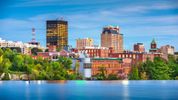Singapore has recently been recognized as a "blue zone," a term used to describe regions where people enjoy remarkably long and healthy lives. This designation, as discussed by Dan Buettner, the originator of the concept, highlights Singapore's achievement in having the highest health-adjusted life expectancy in the world.
What Can We Learn from Singapore?
1. Effective Healthcare System: Singapore's healthcare system is robust and efficient, with a strong emphasis on both preventive care and acute medical treatment. This system ensures that citizens receive high-quality healthcare services that are accessible and affordable.
2. Lifestyle and Diet: The traditional diet in Singapore, rich in vegetables, fruits, and lean proteins, contributes significantly to its inhabitants' health. The city's infrastructure promotes physical activity, with ample parks and public spaces designed for exercise.
3. Government Policies: Singapore’s government has implemented policies that promote healthy living, such as anti-smoking laws and public health campaigns, which educate and encourage residents to adopt healthier lifestyles.
4. Community and Social Harmony: The sense of community and the emphasis on social harmony also play crucial roles. Mental health and well-being are given importance, contributing to lower stress levels and higher life satisfaction.
Singapore's status as a new "blue zone" is a testament to its successful health strategies and societal setup, which other countries might look to for inspiration. The nation’s holistic approach to health and well-being can offer valuable lessons on creating environments that enhance life expectancy and quality of life.
Singapore is the world's latest "blue zone" — defined as a place where people live longer and healthier lives.
 unknownx500
unknownx500
















